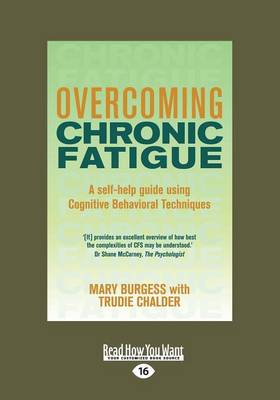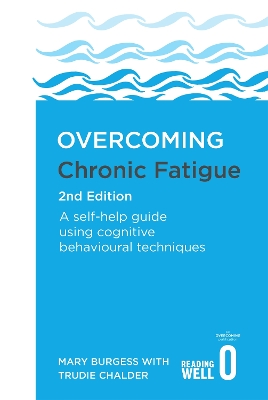Overcoming Books
2 total works
'Cognitive behaviour therapy appears to be an effective and acceptable treatment for adult out-patients with CFS. Its sufferers deserve . . . to be more aware of the potential of this therapy to bring lasting functional benefit.'
Cochrane Review
This valuable self-help guide offers ways of improving long-lasting fatigue associated with a range of long-term conditions including chronic fatigue syndrome. Using recognised techniques, cognitive behavioural therapy (CBT) helps to change coping strategies. The approach described helps people break the vicious circle of fatigue and for many results in a reduction in symptoms and disability.
This fully updated new edition provides:
Guidance on how to improve sleep
Practical strategies for balancing activity and rest
Tips on setting and working towards targets that would improve your life
Step-by-step advice on dealing with blocks to recovery
Tools for coping with worry and stress
Ways to challenge unhelpful thoughts
Suggestions for how partners, relatives and friends can help
Overcoming self-help guides use clinically proven techniques to treat long-standing and disabling conditions, both psychological and physical.
READING WELL
This book is recommended by the National Reading Well Books on Prescription scheme for England delivered by The Reading Agency and the Society of Chief Librarians with funding from Arts Council England and Wellcome.
www.reading-well.org.uk
Series Editor: Professor Peter Cooper

